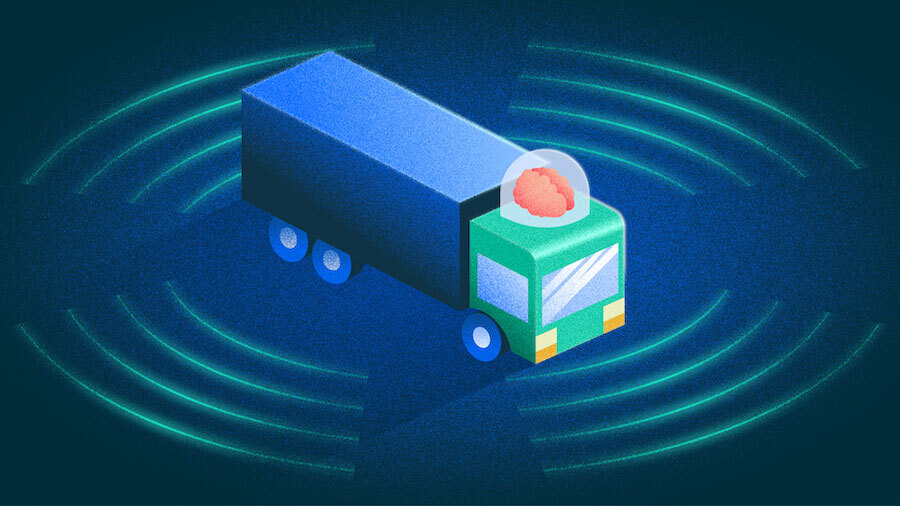Autonomous trucking startup Embark Trucks capped off one of the faster riches-to-rags stories of the SPAC era, announcing that it is laying off most employees and winding down operations.
In a Friday email to employees, CEO and co-founder Alex Rodrigues wrote that “after thoroughly evaluating all alternatives, we have been unable to identify a path forward for the business in its current form.”
The planned closure comes just 16 months after San Francisco-based Embark went public through a SPAC merger at a target initial market capitalization of $5.16 billion. Even by the bubblier market conditions of the time, the deal set an astounding valuation for a pre-revenue company, with backers touting its “sophisticated self-driving software,” built to navigate trucks on long-distance freight trips.
Search less. Close more.
Grow your revenue with all-in-one prospecting solutions powered by the leader in private-company data.
SPAC sponsors put up plenty of money too. The merger plan included approximately $614 million for the company: $414 million from SPAC sponsor Northern Genesis Acquisition Corp. II and $200 million from backers including CPP Investments, trucking firm Knight-Swift Transportation, Mubadala Capital, Sequoia Capital and Tiger Global Management.
When Embark made its Nasdaq debut on November 11, 2021, tech stocks were at their peak and shares traded at close to the target valuation for a couple months. But as markets chilled, so did investors’ attitude toward Embark. Shares shed more than half their value in January 2022, and six months later were down more than 90% from the initial offer price.
As we observed in a November story on Embark’s tortuous public market path, its protracted decline was not due to missing financial projections. The 7-year-old company never had revenue to begin with, let alone earnings or a path to profitability. The entirety of its one time multibillion-dollar valuation rested, instead, on optimism about the potential of its technology.
Times changed. Or, as Rodrigues put it in his Friday message: “The capital markets have turned their backs on pre-revenue companies, just as slipping manufacturer timelines have delayed the prospect of scaled commercial deployment.”
Having “exhausted all alternatives,” Embark said it is laying off approximately 70% of its employees and shuttering its Southern California and Houston offices. The remaining 30% of staff will focus on winding down day-to-day operations and “respectfully supporting our colleagues who have been let go,” Rodrigues wrote.
Embark’s co-founders Rodrigues and Brandon Moak formed the venture when neither was old enough to buy a beer. The company joined the Y Combinator accelerator’s 2016 batch with the initial intent of building self-driving shuttles for use on college campuses.
Shortly after, the team pivoted to self-driving trucks, focusing on highway driving. It was an enormous market and, although still fabulously difficult, presented a seemingly more tractable problem to solve.
As with many Y Combinator founding teams, venture funding followed. Between 2016 and 2019, Embark raised a $2 million seed round led by Maven Ventures, a $15 million Series A led by DCVC, a $30 million Series B led by Sequoia Capital, and a $70 million Series C led by Tiger Global.
Ambitions were high, to say the least. An article in The Wall Street Journal a few years back cited CEO Rodrigues projecting initial deployment of a fully autonomous truck in fewer than five years. The company’s long-term vision included human truckers behind the wheel in city driving, with computers in control on the highway.
Embark is one of multiple startups in the autonomous trucking space that have since shuttered or fallen on hard times. Others include:
- San Francisco-based Otto, one of the earlier startups focused on self-driving trucks, sold to Uber for $680 million in 2016. About two years later, Uber shuttered its self-driving truck division and said it would focus its autonomous driving efforts on cars.
- Starsky Robotics, a venture-backed San Francisco-based autonomous trucking upstart, shut down in 2020 after its Series B fell through. Starsky had raised just over $20 million in funding since being founded in 2015.
- Peloton Technology, a Silicon Valley-based autonomous and connected driving technology startup, raised over $78 million in known funding before shuttering in 2021.
- TuSimple, a San Diego-headquartered developer of robotic truck technology, carried out an IPO in April 2022. After going public at an initial valuation around $8.5 billion, the company now has a market cap around $460 million.
- Aurora, based in Pittsburgh, announced in the summer of 2021 that it would go public via a merger with a SPAC at an initial market capitalization of around $13 billion (including about $2.5 billion in cash). Shares are now down more than 90% from their post-debut peak.

Stay up to date with recent funding rounds, acquisitions, and more with the Crunchbase Daily.



![Illustration of remote meet on cellphone, unicorn chess piece and money. [Dom Guzman]](https://news.crunchbase.com/wp-content/uploads/business-strategy-470x352.jpg)
![Illustration of a magnet attracting various products. [Dom Guzman]](https://news.crunchbase.com/wp-content/uploads/mergers_and_acquisitions-300x168.jpg)


![Illustration of remote meet on cellphone, unicorn chess piece and money. [Dom Guzman]](https://news.crunchbase.com/wp-content/uploads/business-strategy-300x168.jpg)
67.1K Followers